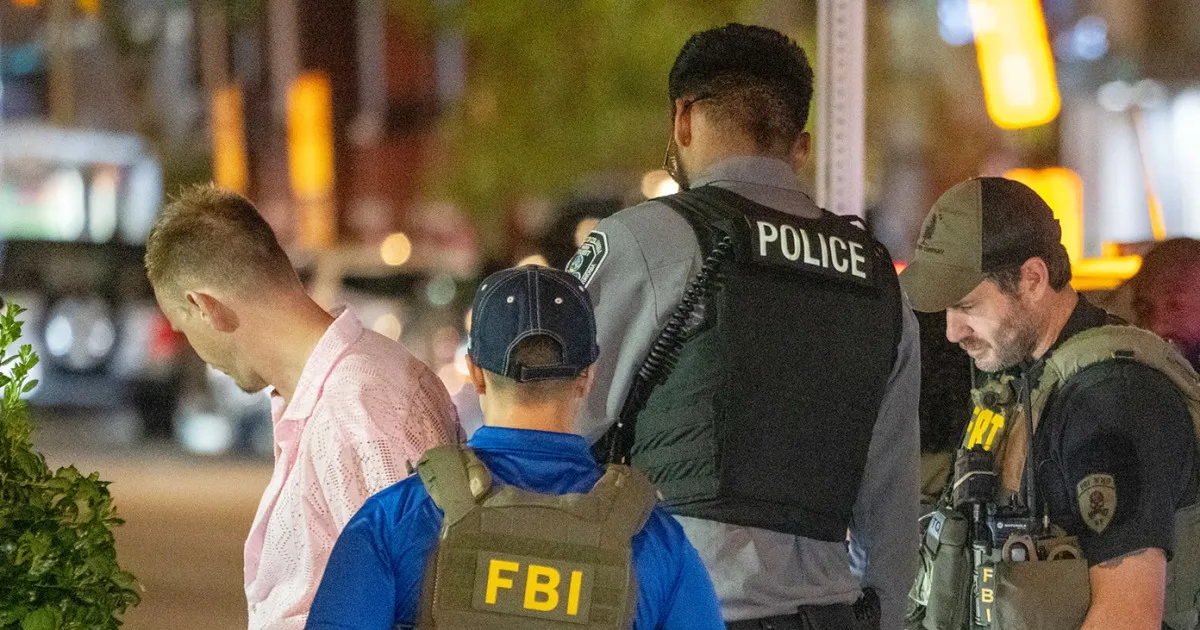
In an unexpected turn of events, a federal grand jury in Washington, D.C., has made headlines by choosing not to indict a man for throwing a salami sub at a federal officer. This decision highlights a growing sentiment among residents regarding the increased presence of federal law enforcement in the city, especially under the administration of former President Donald Trump.
The incident occurred on August 10, 2023, at the bustling intersection of 14th and U Streets NW, a location known for its vibrant nightlife and historical significance during the civil rights movement. Sean Dunn, a 37-year-old former employee of the Justice Department, was captured on video hurling a hoagie at one of the officers deployed in the capital. Eyewitnesses noted his heated remarks directed at the officers, including the exclamation, “F--- you! You f---ing fascists! Why are you here? I don’t want you in my city!”
Following the incident, Dunn was apprehended on the scene and later processed before being released. He faced serious charges in federal court, including felony assault on a federal officer. The White House even shared a stylized video showcasing his arrest, which quickly went viral, sparking a wave of public interest and debate. Dunn’s actions resonated with many as a form of resistance against the enhanced federal presence in D.C., leading to him being dubbed “DC’s Hero” by the Washingtonian magazine. The magazine also noted the appearance of Banksy-inspired art around the city, depicting Dunn throwing the sandwich.
The grand jury’s decision not to indict Dunn is particularly noteworthy as it reflects a pattern of reluctance among Washington, D.C. jurors to support federal prosecutions related to protests against law enforcement. This is not the first instance where federal prosecutors have struggled to secure indictments in similar cases. For example, a previous case involving a woman accused of assaulting an FBI agent during an immigration protest also failed to result in an indictment.
According to legal experts, it is uncommon for a grand jury to decline an indictment, given that the threshold for charging someone is based on probable cause rather than the higher standard of beyond a reasonable doubt required at trial. Grand juries typically only hear from prosecutors, making their decision even more unexpected.
Initially, the federal charges against Dunn were filed via a criminal complaint. However, under the Speedy Trial Act, prosecutors are mandated to secure a grand jury indictment from Washington residents within 30 days. Dunn is scheduled to make a preliminary appearance in federal court on September 4, 2023. It remains uncertain whether prosecutors will attempt to secure another indictment before this court date. Should they fail in this endeavor, they may have to downgrade the felony charge to a misdemeanor, potentially exposing Dunn to a maximum of one year in prison.
This case continues to unfold against the backdrop of ongoing debates about law enforcement's role in Washington, D.C., and the balance between public safety and civil liberties.